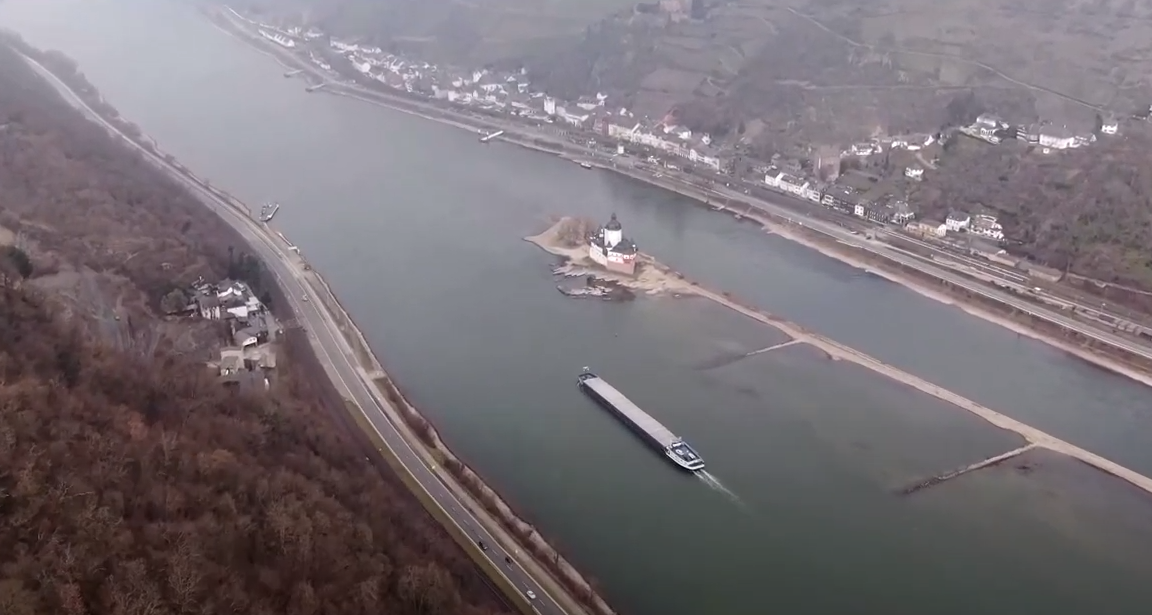
Image:Reuters
In the wake of heavy rain and melting snow, sections of the Rhine River in south Germany are temporarily closed to shipping, causing disruptions in one of Europe’s key transportation arteries. The closure, prompted by increased water levels, is expected to persist for the next few days, according to navigation authorities.
The German inland waterways navigation agency WSA reported a halt in Rhine shipping around Maxau, with the southern sector affected due to a sudden rise in temperatures that led to the melting of snow in the region. The closure began on Tuesday and is anticipated to last until at least Friday. However, a decline in water levels is predicted from Thursday onward, as indicated by the water level forecasting service of the Rheinland-Pfalz state government in south Germany.
High water means vessels do not have enough space to sail under bridges.
The temporary shipping freeze at Maxau is primarily attributed to high water levels, which limit the vertical clearance for vessels passing under bridges. Consequently, this obstruction prevents ships from sailing to Switzerland. Despite the challenges around Maxau, shipping activities in the northern sections of the Rhine, including crucial points like Duisburg, Cologne, and Mannheim, continue to operate normally, even though there has been a rise in water levels.
The Rhine, a vital shipping route facilitating the transportation of various commodities such as minerals, coal, oil products, grains, and animal feed, plays a pivotal role in European trade. The current disruption adds to the challenges faced by the Rhine, which has experienced recurring instances of low water levels in recent years, primarily attributed to unusually dry summers, a concerning trend linked to the broader impact of global warming.
This incident underscores the need for robust and adaptive measures in maritime logistics, especially considering the increasing frequency of extreme weather events associated with climate change. Shipping companies operating in the region, including Stolt Tankers, may need to reassess their strategies to navigate challenges posed by unpredictable weather patterns affecting crucial waterways like the Rhine.
In conclusion, while the closure around Maxau poses a temporary setback, it also serves as a reminder of the vulnerability of maritime transportation to the impacts of climate change. Businesses and authorities alike must remain vigilant and implement sustainable practices to adapt to the evolving dynamics of the shipping industry.
Source:Reuters


